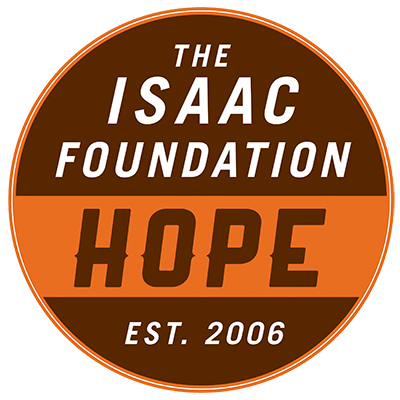 The Hunter Syndrome Research Coalition (the result of our MPS II family banding all our organizations together to fund research) recently donated $200,000 to support the next phase of Dr. McCarty and Dr. Fu’s MPS II gene therapy work.
The Hunter Syndrome Research Coalition (the result of our MPS II family banding all our organizations together to fund research) recently donated $200,000 to support the next phase of Dr. McCarty and Dr. Fu’s MPS II gene therapy work.
We are incredibly thankful to our donors – friends, families, and even strangers, from little children, siblings, parents, to grandparents, who make our work possible.
The next steps of fundraising and research funding will require even more concerted efforts – over $2 million is needed to bring the research to a full human clinical trial. We will be reaching out soon to gather support for our future efforts. Thank you so much for your donations and efforts so far to help save this generation of boys with Hunter Syndrome!
Below is our press release:
COALITION OF PARENT-LED FOUNDATIONS BRINGS GENE THERAPY TREATMENT CLOSER TO REALITY
Parent led-fundraising efforts have donated over $500,000 to treat the rare disease Hunter Syndrome (MPS II)
Vancouver, British Columbia – Over the past three years, parent-led efforts have raised half a million dollars to support gene therapy research at Nationwide Children’s Hospital (Columbus, Ohio) to treat the ultra-rare disease Hunter Syndrome (also known as Mucopolysaccharidosis or MPS II). This month alone, Vancouver, Toronto and Montreal based MPS II Research Fund, along with Nashville-based Saving Case & Friends, Ohio-based Help Extinguish Hunter Syndrome, and Texas-based Hunter Syndrome Foundation collectively donated $200,000 to bring the research closer to a human clinical trial.
Together with several other parent-led fundraising efforts – Caring for Carter, Ryan Our Lion, and Hope 4 Hunter, these foundations have supported this research, led by Douglas McCarty, Ph.D. and Haiyan Fu, Ph.D. of Nationwide, for several years.
Hunter Syndrome is a rare, genetic condition that affects approximately 2,000 patients worldwide, almost exclusively young boys. Patients are missing an enzyme, resulting in the accumulation of cellular waste throughout the body. Babies develop normally for the first few years, then begin to experience progressive symptoms like stiff joints, enlarged liver and spleen, behavioral problems, constant ear infections and runny nose, and heart valve complications. The average life span for someone with the most common, severe form of the disease is in the early teens.
There is no cure for the disease, although once diagnosed, patients can begin receiving a weekly infusion of an enzyme replacement therapy. This medication, Elaprase, is one of the most expensive in the world, often $400,000 or more per patient, per year, and only stabilizes some of the physical symptoms of the disease. Because it does not cross the blood-brain-barrier, it does nothing to prevent the progressive brain damage that occurs in most children affected by the disease.
Dr. McCarty notes, “This gene therapy for MPS II is the result of more than a decade of collaborative research efforts of the research team here at Nationwide and Dr. Joseph Muenzer [of the University of North Carolina, Chapel Hill], with support from MPS II patient family foundations. This gene therapy approach targets the root cause of MPS II by delivering the correct gene using a vector that can cross the blood-brain-barrier. Our preclinical data have shown great promise with lifelong benefits in MPS II mice after a single intravenous injection. We believe that we are well positioned to move forward towards a Phase 1/2 clinical trial in patients with MPS II.”
To raise funds, the foundations organized local fundraisers and also promoted an award-winning online campaign called Project Alive (ProjectAlive.org). The campaign received a Telly Award for its powerful and emotional video and an Honorable Mention for its song “Alive,” written by a parent of a child with Hunter Syndrome, from the International Songwriting Competition.
About The MPS II Research Fund
Started in 2004, the MPS II Research Fund is a leading Hunter Syndrome research and advocacy organization within The Isaac Foundation, raising awareness of Hunter Syndrome globally, funding curative research for the disease, and advocating for patients and families affected by Hunter Syndrome. For more information, visit www.treypurcell.com or www.theisaacfoundation.com.
TAGS: clinical trials, pharmaceutical industry, drug development, patients, rare disease
Note: The photo above is Trey’s first ever school picture (he’s been home schooled until now) at West Van High!!
